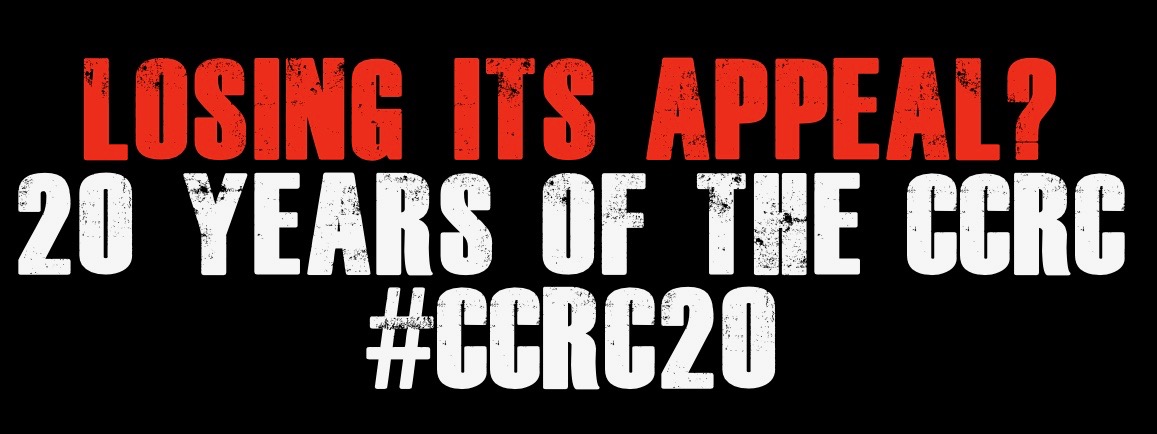#CCRC20: Policing the police

Pic by Matt Preston (Flickr, creative comms)
Is Thomas (‘Tommy’) Grecian innocent of the murder of Jimmy Atkinson? We can’t know that. But what we can say for certain is that we have serious doubts about the safety of his conviction.
Tommy has always protested his innocence of the 2004 murder. Our innocence project has been working on Tommy’s case for four years, culminating in us making submissions to the Criminal Cases Review Commission (CCRC) based on what may be regarded as some very ‘dodgy’ police actions during the investigation.
How did we get on? It was turned down – no surprise there then.
This is Tommy’s story, in brief. He wants to share with the world his protestations of innocence and his story has been picked up by a newspaper local to the murder scene – see here.
Our previous article in this series looked at an example of the Court of Appeal declining to overturn a conviction referred to it by the CCRC, based on proven serious misconduct by certain police officers in other similar cases which were subsequently exposed as major miscarriages of justice (here).
This has reinforced our concerns about how the CCRC will, or will not, react to suggestions we make in our submissions that relate to potential police malpractice. In particular, the bar is undoubtedly set so high that any submission to the CCRC that necessitates a full investigation into police activity probably has less chance of success than the proverbial cat in hell. It can be ‘the kiss of death’, our student Alex Thomas suggests.
So this article summarises how the CCRC dealt with our issues in this one particular case. It confirms our concerns that in this post-Hillsborough world there is still such reluctance by our appeal court properly to deal with alleged police misconduct. This has a knock-on effect on the CCRC in that they are understandably reluctant to refer when they know how the Court of Appeal will react. This confirms deep problems with the culture of our appeals system, and reinforces the need for an urgent review.
To be fair to the CCRC, they invested time in meeting with us on Tommy’s case. One commissioner and two of their employees spent two hours with us (including one of our independent pro bono police experts) in Birmingham in recent months. It was, however, of concern to us that the meeting was suggested only after they had issued a final statement of reasons.
That meant it could not be a meaningful meeting, at which the CCRC retained an open mind about what was discussed. For that reason, it felt rather pointless, to be frank, even though we respect the fact that they gave us time out of their busy schedules. It felt patronising because the meeting was not offered at a stage where they may have changed their minds as a result of anything that was said at that meeting. I’m sure that wasn’t the intention, but it might be worth the CCRC implementing a good practice protocol of holding meetings at a meaningful point in reviews.
One of our main concerns in Tommy’s case can be summarised as follows.
There was an absolutely crucial police message from a community safety officer which described a potential suspect wearing a red hiking sock on his hand on the day of the murder. The next day a red sock was found near the crime scene around midday. The timing of this message, written as 10.10 that day, was critical in that it was timed before the sock was found, which makes the observations appear very reliable. Furthermore, later that day Tommy’s co-defendant described how Tommy put a red sock on his hand when he stabbed the victim. This is powerful evidence; a witness sees an unusual item being worn, the item is later found and then the co-defendant later confirms it was used in the murder.
However, the relevant message was subject to a number of recording anomalies. (Those of you recently following ITV’s Line of Duty will know how crucial this all is to the integrity of the recording of evidence!). It was not recorded in the incident log, it was not properly referenced on the schedule of unused material, and was not properly referenced or signed off by the indexer. Indeed, the reference (written on the message) to its place on the unused schedule was incorrect. The message did not appear on the schedule at all and the corresponding number on the schedule related to an entirely different message. All the messages disclosed, except this one, correspond to the numbered item on the unused schedule.
Of course, given the importance of the message to the prosecution case, these kinds of anomalies raised questions about the integrity of the incriminating message. Might it have been created at a later stage in order to artificially strengthen the evidence? The anomalies relating to the unused schedule in particular are, on the face of it, highly suggestive of this.
The CCRC says that this does not warrant investigation – it is not new, and it could have been questioned at the time of trial. However, in reality, it is virtually impossible for the defence to investigate such suspicions in the pre-trial process and it would be very dangerous to suggest police manipulation of evidence at trial without having proof. The CCRC also points out there is other evidence that appears to be compelling, which in fairness it does, on the face of it. However if there has been manipulation of evidence, and neither the police nor the CCRC have provided any explanation for the anomalies, how can the integrity of other evidence be assured?
The situation became even more damaging for Tommy when his co-defendant pleaded guilty eight days into the trial, having implicated Tommy in a trial predicated by the prosecution from the outset on ‘joint enterprise’. The prosecution had clearly told the jury that if one was guilty then both were guilty. No-one at the trial seemed to recognise that to continue the trial against Tommy was beyond prejudicial – his conviction was a logical certainty. It is deeply disturbing, in our view, that the CCRC would not budge in the face of both potential police malpractice and a blatantly unfair trial.
Our meeting with the CCRC was very professional and courteous, as always. The commissioner was keen to establish the basis on which we conduct our reviews/investigations, compared to how the CCRC tackles its reviews. We explained that we looked at cases more widely than the real possibility test constrictions would dictate. We look at evidence that was available at the time of trial, as well as looking for new evidence where possible. We explained that to do otherwise flies in the face of common sense, whatever the statute says. Our approach is also in line with, and supports, our wider calls for a fairer appeals system that does not operate under such disingenuous rules that serve to perpetuate injustice in the interests of the ‘integrity’ of the system.
It seemed that a penny dropped for the commissioner at this point.
We were being asked to explain our ‘methodology’, and it was clear to both sides that it wasn’t the same approach that the CCRC uses. We know what the statute says about ‘real possibility’, and we know what the CCRC’s statutory remit is. But that doesn’t mean that we should accept the elephant in the room that is the artificiality of the rules of the game and the unsatisfactory insistence on the finality of the jury verdict. We approach our reviews with our own integrity at their heart, rather than the integrity of a system that is neither fair nor working.
We aren’t being naïve in taking this holistic approach. We know full well that we have to address our submissions to the appeal criteria. We make huge efforts to do just that, and sometimes we have the input of practising lawyers whose job it is to bear that in mind. But alongside that, and out of respect to our clients and to the truth, we make our submissions wider.
We do not omit facts or arguments that aren’t ‘allowed’ now just because they were available at the time of trial. We are not averse to spelling out flaws in evidence, potential police malpractice, or poor defence work at trial, where fair play dictates that we should do so. Genuinely innocent people deserve better than to be prevented from using the same evidence presented differently, just because our system favours finality over fairness. We say that the rules of the game aren’t fair, and need to be changed urgently.
Articles on the Justice Gap by staff and students of the Cardiff Law School Innocence Project are their own personal views based on their project casework experiences, and are not the views of Cardiff University and/or Cardiff School of Law and Politics








